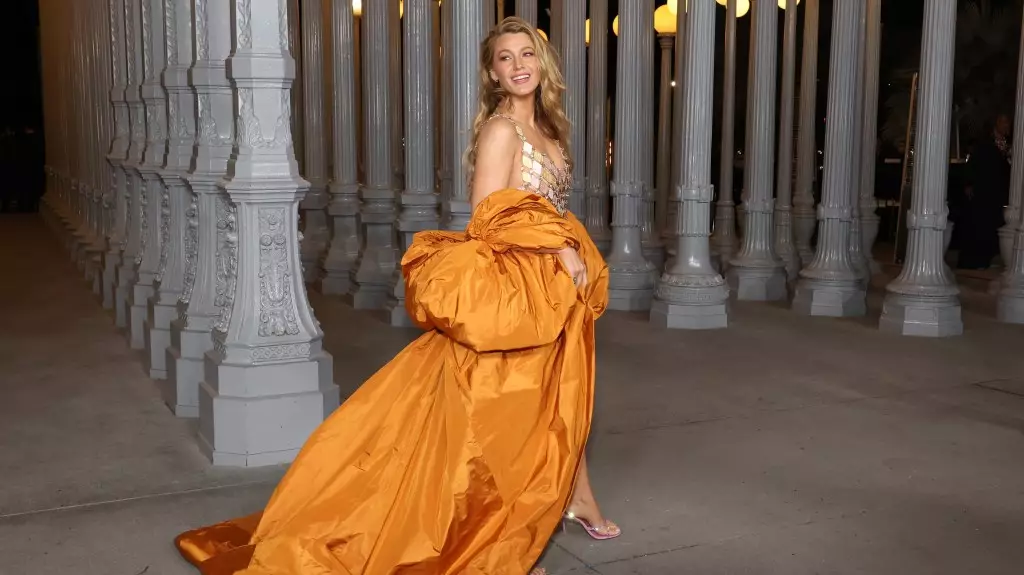The entertainment industry is rife with stories of misconduct, and the recent lawsuit filed by Blake Lively against her co-star and director Justin Baldoni has reignited these necessary discussions. Lively’s claims of sexual harassment and alleged retaliatory measures taken against her illuminate the dark side of Hollywood, particularly concerning how powerful individuals respond to those who dare to speak against them. This case not only highlights Lively’s grievances but serves as a broader indictment of systemic issues in the industry.
Blake Lively has leveled serious accusations at Justin Baldoni, asserting that his behavior on the set of “It Ends With Us” not only crossed professional boundaries but led to retaliatory actions that severely impacted her career. Her claims indicated that a toxic workplace atmosphere and Baldoni’s inappropriate conduct forced her to withdraw from several public appearances, including the prestigious role of hosting the season premiere of “Saturday Night Live”. The lawsuit asserts that these decisions were made out of her concern for her reputation and the impact that discussing on-set events would have on her public image.
The ramifications of such workplace misconduct can be extensive and long-lasting. Lively’s cancellation of appearances at significant industry events indicates the pervasive fear that individuals face when speaking up against inappropriate behavior. According to the lawsuit, the fallout from Baldoni’s alleged harassment was immediate, culminating in the cancellation of a crucial corporate event for her haircare brand. The high-profile nature of these cases reveals how vulnerable professionals can be, especially when their careers are intertwined with powerful figures in the industry.
Lively’s complaint outlines what she characterizes as a deliberate and comprehensive retaliatory campaign orchestrated by Baldoni and his production company, Wayfarer Studios. The inclusion of a “sophisticated press and digital plan” designed to tarnish Lively’s public image reflects a dangerous trend in the entertainment sector where powerful individuals use their resources to silence dissent. Such strategies not only harm the targeted individual but also perpetuate a culture of silence that discourages others from speaking out.
Lively’s lawsuit alleges that a meeting was held post the Hollywood strikes, wherein her concerns about Baldoni were brushed aside. The content of this meeting reportedly showcased Baldoni’s dismissive attitude toward Lively’s discomfort, exemplifying the exact power dynamics that have made Hollywood’s culture of silence so persistent. This dismissal is compounded by his alleged jokes about missing HR meetings, which trivializes the serious nature of harassment allegations and demonstrates a profound lack of accountability.
The immediate fallout from the lawsuit has already been significant. Following the allegations, Baldoni’s representation by WME came to an abrupt end, indicating that the repercussions of such claims are not limited to the individuals involved. Moreover, the industry seems to be rallying around Lively; Colleen Hoover, the author of the source material, publicly expressed her support for Lively. This kind of backing can signal a shift where the balance of power begins to tilt in favor of those who come forward.
The legal ramifications of Lively’s case extend beyond their personal grievances. As this lawsuit unfolds, it may serve as a touchstone for future discussions on how the industry must evolve in terms of accountability and transparency. With the growing momentum of movements that champion victims’ rights, such as #MeToo, Lively’s case may represent not only her fight but also a potential turning point for better practices in workplace environments across the board.
As Blake Lively navigates the challenges posed by her lawsuit against Justin Baldoni, the broader implications resonate throughout the entertainment industry. Issues of sexual harassment, retaliation, and the intersection of power dynamics remain at the forefront of discourse surrounding workplace behavior. It is critical that the industry takes notice and begins to implement changes that protect individuals from such misconduct. This case reinforces the ongoing need for accountability, ensuring that no one is above the law, and instilling hope that courage in the face of adversity can lead to substantive change in Hollywood and beyond.

